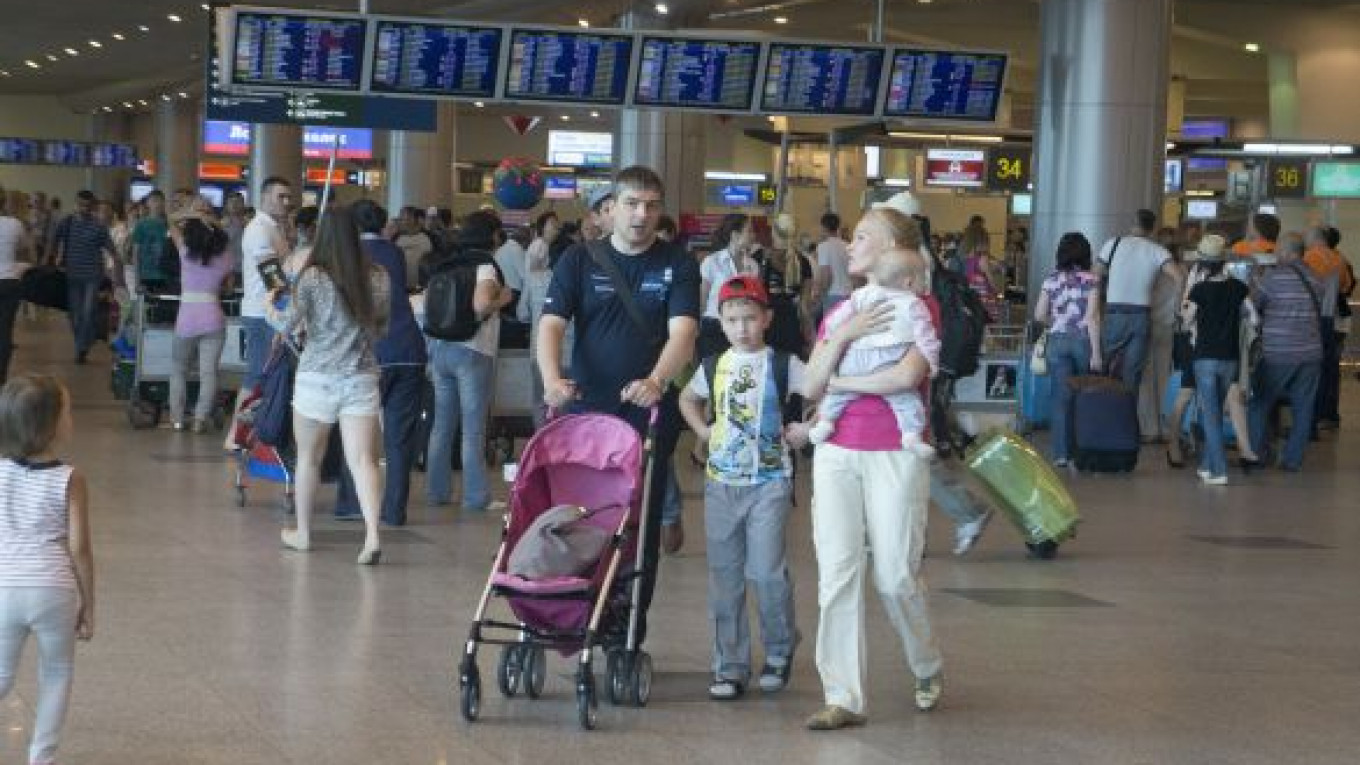Aeroflot's cost structures are not suitable for creating a budget airline, according to a recent analysis by McKinsey & Company consulting company, Vedomosti reported.
Aeroflot chief Vitaly Savyolov told President Vladimir Putin at a meeting last month that the national carrier was ready to create a low-cost subsidiary if restrictions set by current aviation law were lifted.
But when McKinsey experts compared Aeroflot's costs with those of its U.S. counterparts they found other constraints embedded in the company's cost structure. They said that Aeroflot's costs are comparable with those of traditional carriers, but are one-third higher than those of budget airlines.
About 27 percent of the difference between Aeroflot's costs and those of budget airlines is due to a lack of cheap airports and aircraft maintenance facilities, the experts said. In the U.S., low-cost airlines service their planes in Latin America to cut expenses.
But almost 60 percent of the difference is due to operational inefficiencies. McKinsey found that Aeroflot's flight time is 20 to 40 percent lower than that of its U.S. counterparts.
Dmitry Savitsky, a partner at McKinsey & Company, attributes this to inefficient operation of air traffic control systems. In addition, few airports in Russia currently have the capacity to send a plane on its return flight in 30 minutes after landing, which is a prerequisite of a low-cost airline.
The study found that the interior design of Aeroflot aircraft contributes to higher operational costs. Aeroflot's A-320 planes have only 140 seats, while those of U.S. airlines have 162. Budget airlines have lighter seats with less distance between them, spending about 6.6 cents per passenger seat. Aeroflot, on the other hand, spends more — 9.6 cents, according to the study. Dmitry Chernyak, a former A1 executive who oversaw the development of low-cost airline Avianova, said that buying aircraft with a capacity of 160 seats is unprofitable because they are subject to a 20 percent customs duty.
Additional problems come from sales. Only 25 percent of Aeroflot's tickets are distributed through its website, a source with the company told Vedomosti Tuesday, while low-cost airlines sell 90 percent of their tickets through their sites. Aeroflot continues to pay commission on tickets distributed through its agents, as well as rent and wages to employees selling them.
This accounts for 20 percent of the difference in the costs of Aeroflot and budget carriers, Savitsky said.
But an Aeroflot source told Vedomosti that they are not planning to build a budget airline mirroring its own structure.
The tickets of Aeroflot's low-cost subsidiary will cost 30 percent less than those of Aeroflot for the same route, the source said.
Related articles:
A Message from The Moscow Times:
Dear readers,
We are facing unprecedented challenges. Russia's Prosecutor General's Office has designated The Moscow Times as an "undesirable" organization, criminalizing our work and putting our staff at risk of prosecution. This follows our earlier unjust labeling as a "foreign agent."
These actions are direct attempts to silence independent journalism in Russia. The authorities claim our work "discredits the decisions of the Russian leadership." We see things differently: we strive to provide accurate, unbiased reporting on Russia.
We, the journalists of The Moscow Times, refuse to be silenced. But to continue our work, we need your help.
Your support, no matter how small, makes a world of difference. If you can, please support us monthly starting from just $2. It's quick to set up, and every contribution makes a significant impact.
By supporting The Moscow Times, you're defending open, independent journalism in the face of repression. Thank you for standing with us.
Remind me later.






